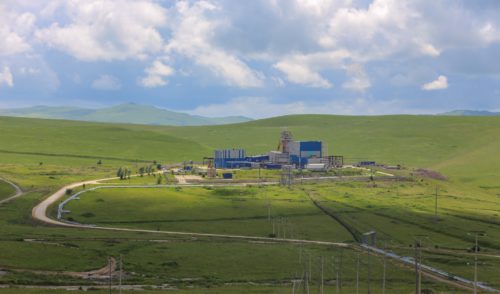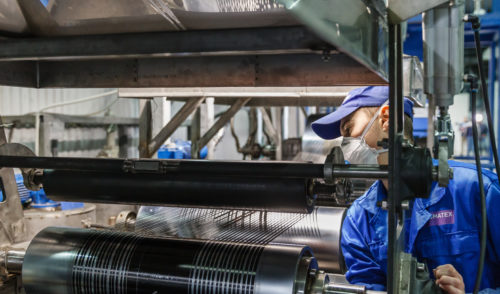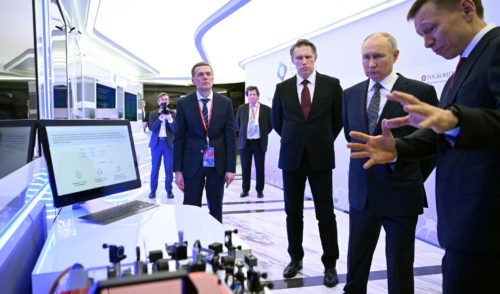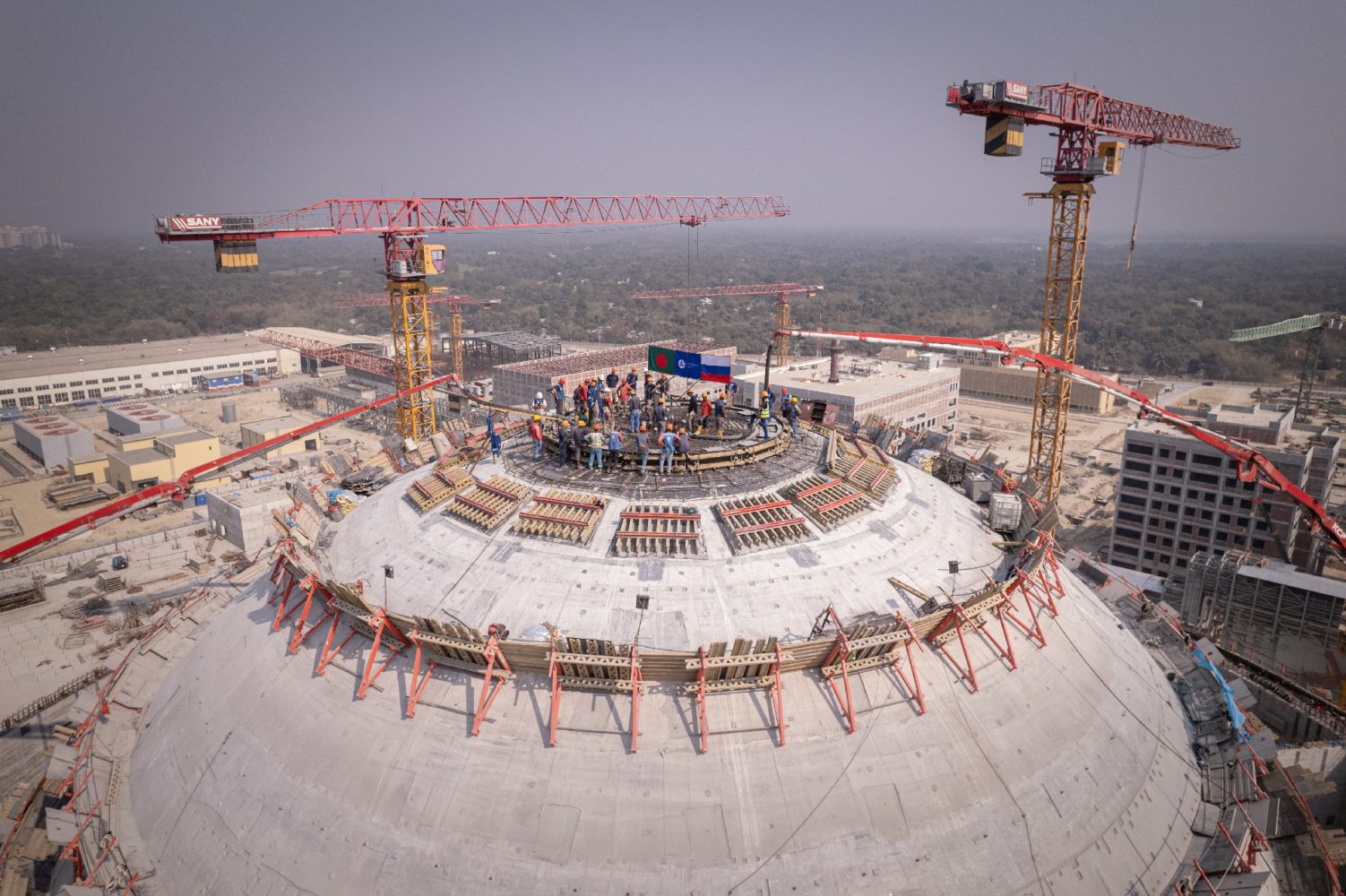
Accelerating Towards Launch
back to contentsConstruction works on the Rooppur site are not slowing down, and some of them are much ahead of schedule. Concreting of the outer containment was completed 45 days earlier than planned.
The entire process took 110 instead of 155 days. The timeline was shortened by increasing labor productivity and implementing several process improvements. All in all, 65 workers were involved in the concreting process, 44 of whom were local staff. The dome section of the containment required 1383 cubic meters of concrete to pour.
Since concreting of the outer containment was finished ahead of time, Rosatom’s Engineering Division could also finish the installation of external and internal steel structures of the passive heat removal system (PHRS) deflector sooner than scheduled. The complexity of this operation lies in the required installation accuracy: the allowable deviation for the heavy steel structures weighing 140 and 110 tons each is less than 10 mm.
“The faster-than-planned concreting made it possible to install the deflector ahead of the schedule and opened the way to begin the installation of heat exchangers, jackets of the heat exchanging unit and PHRS air ducts,” Alexei Deriy, ASE Vice President and Director of the Rooppur construction project, explains.
Also in mid-March, a pressurizer was installed in the reactor building of Rooppur Unit 2. This is a 189-ton vessel designed to create and maintain the required pressure in the primary circuit of the reactor. Its other function is to compensate for changes in the volume of coolant as its temperature fluctuates. The pressurizer is 13.7 meters long and has a volume of 79 cubic meters. It has already been delivered to the construction site.
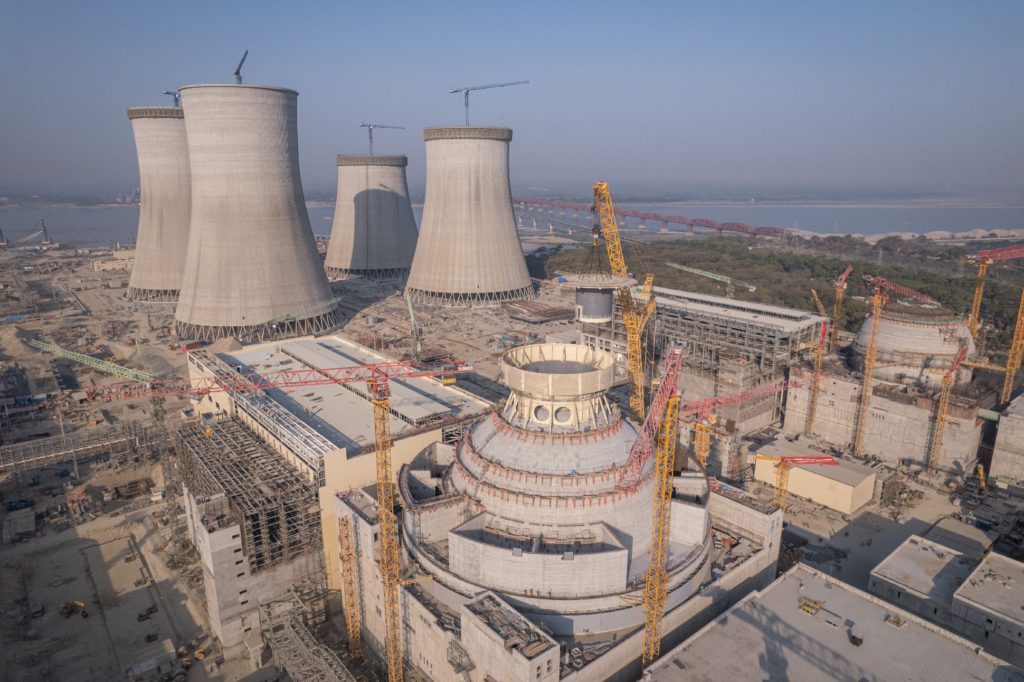
In March, Bangladesh’s ship Aparajita carrying cargo for the Rooppur NPP arrived at the Port of Mongla from the Indian port of Haldia. The total weight of the cargo was 1,249.16 tons. This was the third Russian shipment for the under-construction plant in transit through India. Due to the sanctions imposed by the United States, 69 ships of seven Russian companies cannot deliver cargoes directly from the Russian port of Saint Petersburg to Mongla. Earlier, two more shipments of equipment for Rooppur had also transited through India on their way from Russia to Bangladesh.
As for nuclear fuel, Russia opted for air transport. The first Russian cargo plane carrying fuel is expected to arrive in Bangladesh in October 2023. A group of experts from Rosatom recently visited Dhaka to inspect the infrastructure and runway of Hazrat Shahjalal International Airport (HSIA). They also inspected the roads from the airport to the Rooppur NPP construction site to make sure that there would be no problems during transportation.
Rooppur Project Director Muhammad Shawkat Akbar told Somoy TV that almost all the key works at Unit 1 had been finished or were in the final stage and that the first reactor unit was nearly 90% complete. Preparations for its commissioning have begun. “Once the infrastructure is in place and qualified personnel have been trained, uranium fuel will be delivered to Rooppur following all the required procedures. This should happen in October 2023. The successful completion of this stage will be a critical step for Bangladesh towards commissioning Unit 1 and entering the ‘nuclear club’. As far as safety is concerned, we do everything necessary to ensure safety of the plant in strict compliance with the IAEA standards. Hopefully, Unit 1 will be commissioned in September 2024,” Shawkat Akbar stressed.
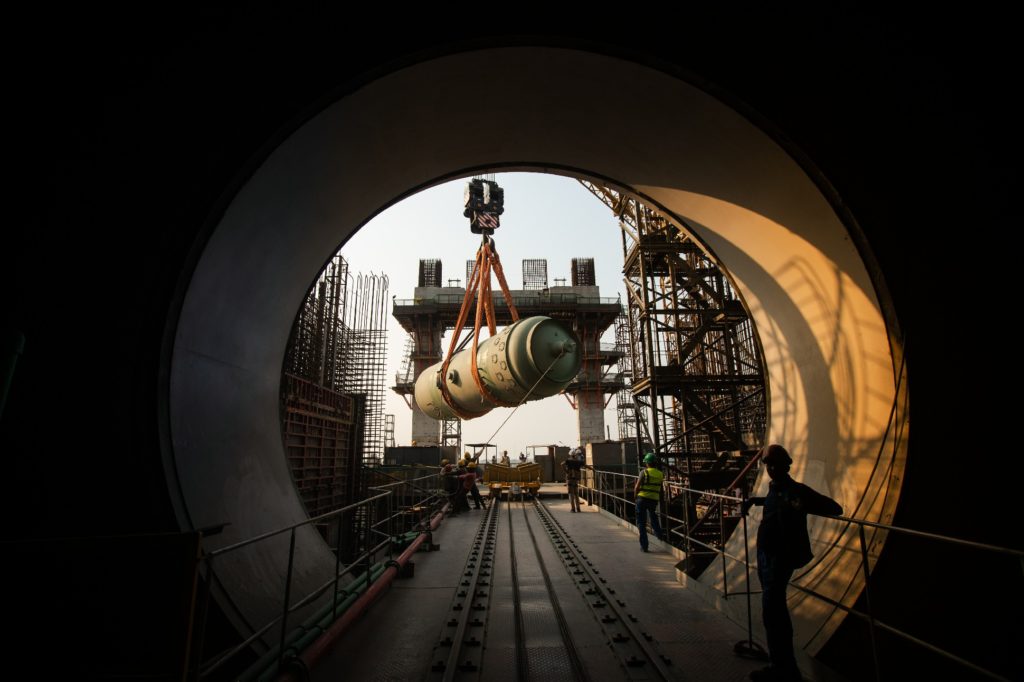
In an interview for Somoy TV, Minister of Science and Technology of Bangladesh Yafes Osman expressed his satisfaction with the progress of construction at the both units. “The nuclear power plant is 75% complete on average. If we talk about Unit 2, it is about 50% complete. The licensing procedure will definitely take some time, but I am certain it will be passed because the Russian nuclear technology, including Generation 3+ VVER-1200 reactors, is the best in the world. In the end, I have no doubt that all the works will be done in full and on schedule despite some existing problems,” Minister Yafes Osman said.


